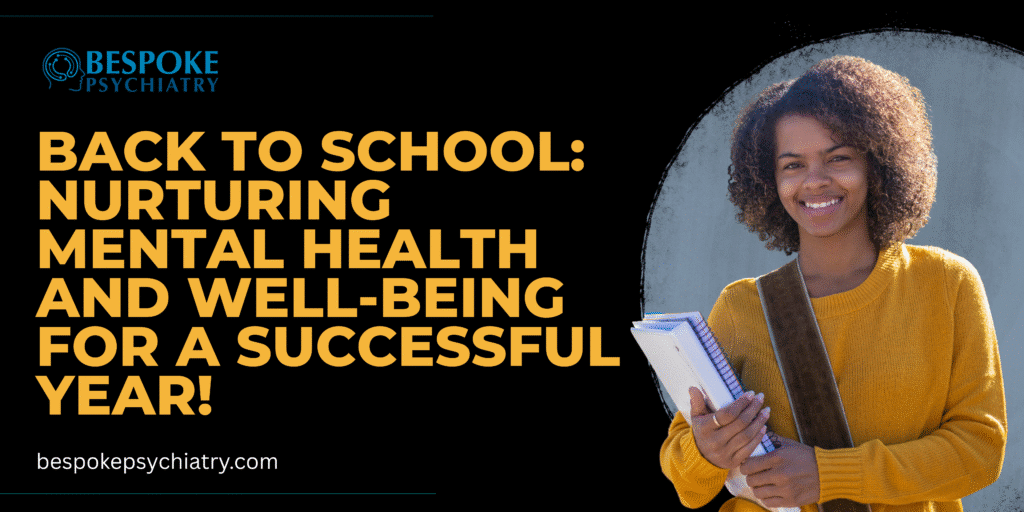
The back-to-school season often brings a mix of excitement, curiosity, and—sometimes—anxiety. Whether you are a student stepping into a new grade, a parent preparing your child, or an educator welcoming a classroom full of learners, the transition from summer to school life can be emotionally complex. Recognizing and supporting mental health during this time is essential for fostering resilience, focus, and long-term well-being.
The Emotional Landscape of Returning to School
Transitions inherently demand adaptation. For students, this can mean adjusting to new routines, teachers, peer groups, and academic expectations. For parents and educators, it can involve managing logistical challenges, emotional support, and sometimes their own stress. According to the American Psychological Association, periods of change can temporarily elevate stress levels, especially if uncertainty or perceived pressure is high.
Some common emotional experiences during back-to-school include:
- Anticipatory anxiety about social interactions or academic performance
- Excitement about new opportunities and friendships
- Sadness or loss as summer freedom ends
- Overwhelm when juggling multiple responsibilities
It’s important to remember that these feelings are natural, and with the right tools, they can be managed in ways that promote mental health rather than deplete it.
Practical Strategies for Supporting Mental Well-Being
1. Prioritize Consistent Routines
Predictability reduces stress. A regular sleep schedule, structured homework time, and set meal routines provide a sense of stability that calms the nervous system. Research shows that consistent routines can improve emotional regulation in children and adolescents.
2. Practice Open Communication
Create an environment—at home or in the classroom—where feelings can be expressed without judgment. Instead of asking “How was your day?” consider specific prompts like “What was one good thing that happened today?” or “What felt challenging?” This invites more meaningful dialogue.
3. Encourage Healthy Coping Skills
Deep breathing, mindfulness exercises, and short movement breaks can help regulate emotions. Apps like Headspace or Calm offer guided tools for students and adults alike.
4. Manage Academic Pressure Thoughtfully
While high expectations can motivate, excessive pressure can harm mental health. Focus on effort and progress rather than perfection. Reinforce the idea that mistakes are part of learning.
5. Stay Connected Socially
School is not just about academics—it’s a social ecosystem. Encouraging participation in clubs, sports, or arts can strengthen a sense of belonging, which research links to higher well-being and resilience.
6. Monitor Warning Signs of Distress
Persistent sadness, withdrawal from activities, changes in appetite or sleep, or declining academic performance may signal deeper mental health concerns. Early intervention from a counselor, therapist, or pediatrician can make a significant difference.
For Parents and Educators: Caring for Your Own Mental Health
Supporting students requires emotional energy. Parents and educators benefit from self-care practices that reduce burnout, such as:
- Setting healthy boundaries on work and technology use
- Engaging in regular physical activity
- Maintaining supportive social networks
- Seeking professional help when stress feels unmanageable
Remember, children and teens often model their coping behaviors after the adults in their lives. By managing your own stress constructively, you set a powerful example.
A Compassionate Perspective
Back-to-school season is more than a logistical shift—it’s a psychological one. Viewing it through a lens of empathy helps reduce unnecessary pressure and fosters a culture of care. By intentionally supporting mental health, we can make the return to school a time of growth, connection, and optimism, rather than anxiety and overwhelm.
In the words of educational psychologist Dr. Michele Borba, “Children don’t need a perfect parent or perfect teacher; they need a present one—someone who sees them, hears them, and believes in them.” This presence and belief, paired with healthy habits and open communication, can set the tone for a thriving school year.
If you or someone you care about is finding the transition back to school especially overwhelming, know that you don’t have to navigate it alone. At Bespoke Psychiatry, we provide compassionate, personalized mental health care to help students, parents, and educators manage stress, anxiety, mood changes, and other challenges that can arise during this season. Our team is dedicated to listening, understanding, and creating a plan that supports your unique needs and goals. If you’re feeling stuck, exhausted, or unsure where to turn, we invite you to reach out—together, we can help you find clarity, balance, and renewed confidence. Become a new patient today!



